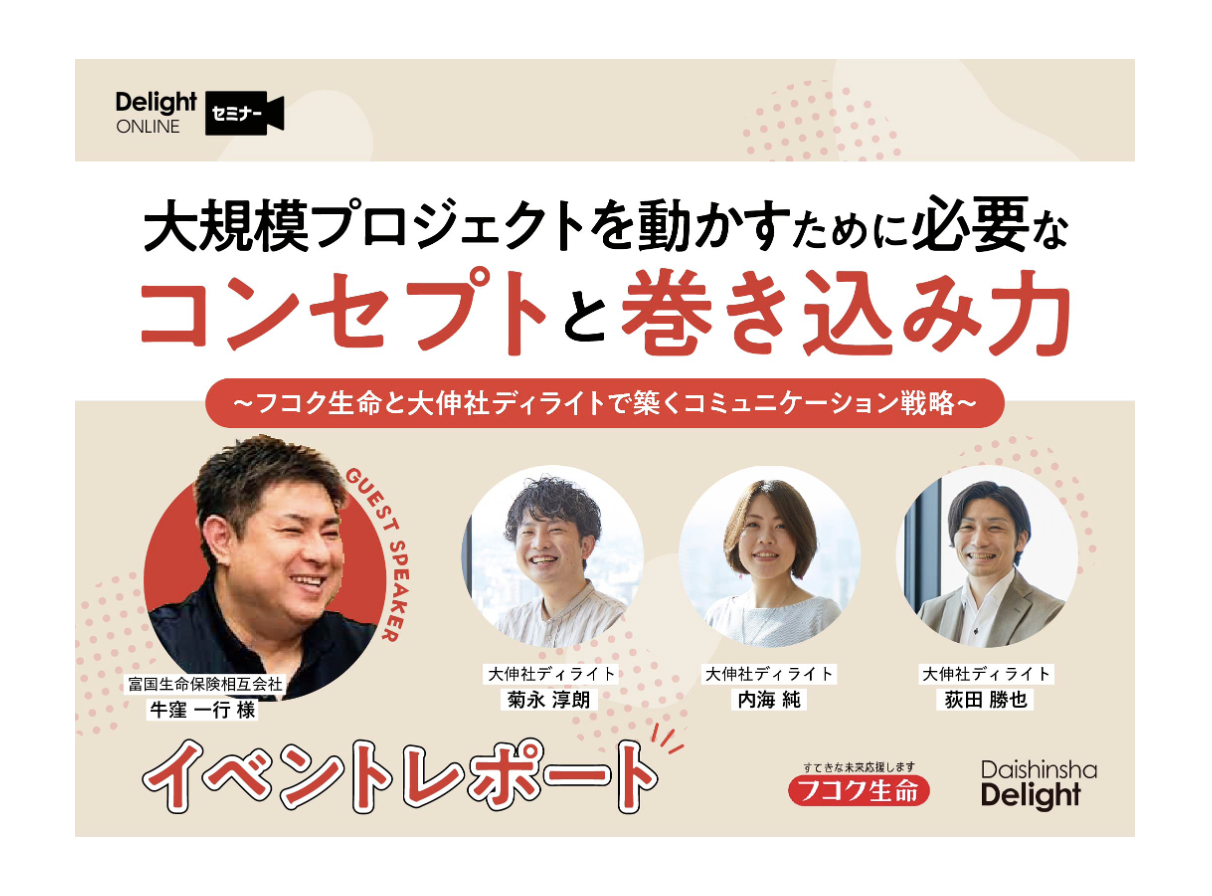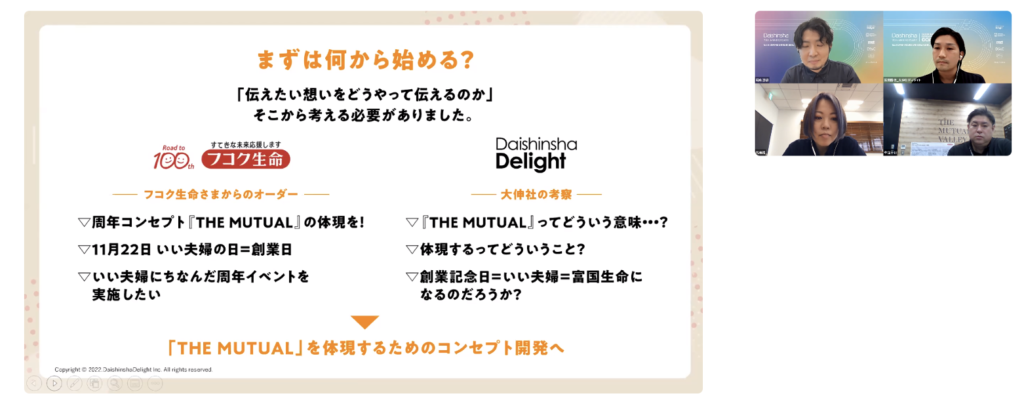Vision
To be a results-driven, strategic partner for your marketing and communications activity in Japan.
Latest Topics

Reported in Webinar: Concepts and Involvement Essential for Large-Scale Projects
In Japan, for many years, the mainstream of business was based on membership-based employment to support economic growth, where business was conducted through close communication with members of the same culture. However, as the market environment has changed dramatically in recent years, there are fewer and fewer jobs that can be completed only by specific departments and people involved within the company, and project-based work styles that procure the necessary human resources from both inside and outside the company are on the rise.
However, such projects require collaboration with people who do not share the same culture or background, and there are also issues such as the project falling apart halfway through if the project requirements are not defined, or the project not taking off due to poor coordination and information transfer when involving parties other than the core members. We have also been consulting on this type of project.
We are also seeing an increase in the number of such project-based consultations, and the projects are no longer a client-agency or client-company relationship, but rather a complex project involving three or more companies, including different collaborators, consulting teams, and individuals with knowledge and experience.
We have experienced both successes and failures in these projects, and we believe that the key to success or failure is the “concept” and “ability to involve others.
To discuss the above themes in depth and exchange opinions, we held a webinar using Fukoku Mutual Life Insurance’s anniversary campaign project “Ii Who & Who” as a case study.
The guest speaker was Mr. Kazuyuki Ushikubo, who is in charge of the project’s execution.
The first key point was the concept. The concept of “THE MUTUAL,” which was developed to increase the number of Fukoku Mutual fans both inside and outside the company, was to be disseminated throughout the entire anniversary project. While the feelings behind this word were strong, there were concerns that it would not become a personalized word for people inside and outside the company who did not know anything about it.

We also considered various recent changes surrounding married couples, such as “lifestyle changes,” “changes in social support for married couples,” and “changes in the concept of married couples,” and identified that “there are cases where problems between two people cannot be solved without social support” and that “there are bonds that cannot be handled within the conventional framework of a married couple. We have identified that “there are bonds that cannot be addressed within the conventional framework of a married couple.
How do we take over this strong concept originating from our own company and permeate it into social issues and the lives of our customers? (I feel that the turning point for us was the question of how we could take over this strong concept that originated with our company and make it permeate social issues and the lives of our customers (how we could become a social good).
The next point is the power of involvement.
The key is to get the people involved to empathize with the project and make it their own business. In hindsight, it was very important to know “what is needed to make it personal to each person,” such as how to get people to empathize with the project and what is needed to reach that point.
The amount of enthusiasm that the person in charge of the project put into promoting the project was also a very important point. In the case of Fukoku Mutual Life Insurance, they wanted to leave some kind of mark, so they kept sending out internal e-mails and communicated to their employees with great enthusiasm. First of all, they made an effort to explain the concept in their own words and convey it with enthusiasm.
The project, supported by such logical concepts and high enthusiasm, attracted more than twice the number of applicants than the target in the first year, and is still moving forward toward the 100th anniversary in 2023.
The webinar, which presented the successes and failures of the exhibition in the form of a talk session, can be archived and viewed at the following URL
https://d-delight.jp/seminar_movie/8511
We will continue to promote projects that change the customer experience and change society for the better!
